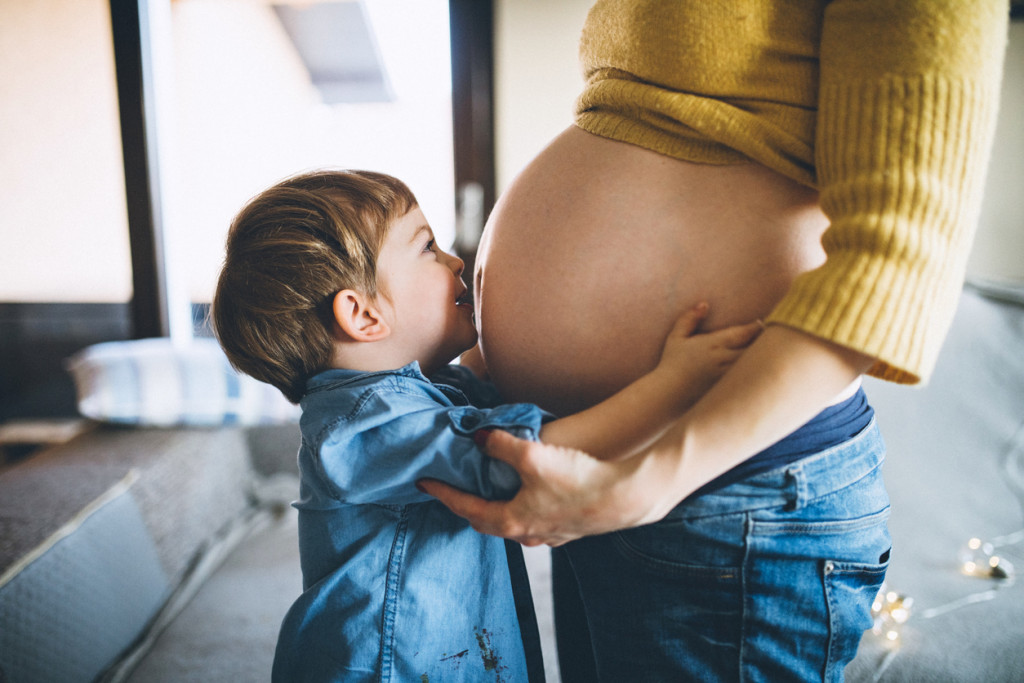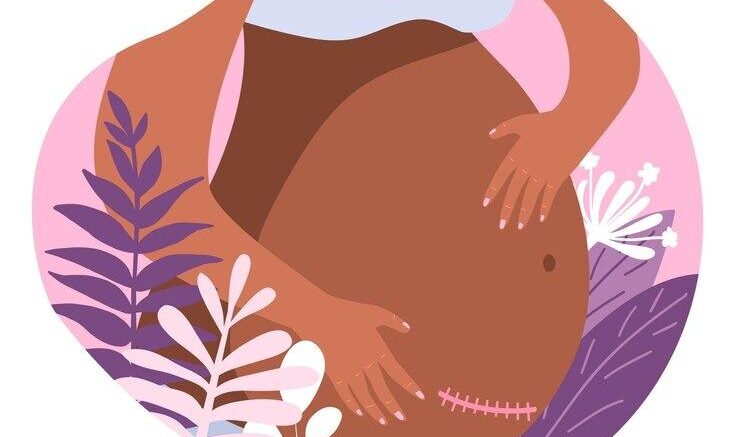Pregnancy is such a magical experience. We think about every little detail for nine months to make sure that labor and delivery go well. People who are about to give birth have a lot of worries and fears. Will it be painful? “What if I need a c-section?” is one of the things that parents worry about most before their big day. This concern is totally valid. The obstetrician plays an important role in guiding you throughout this journey.
A cesarean section is also called a “C section.” It is a type of surgery that helps a woman give birth by making an incision over her stomach and uterus. It can be planned or must be completed quickly. There are many reasons for this, such as the baby being in an odd situation or the mother having health problems.
What is more painful, a c-section or a natural birth?
If you mean the moment the baby comes into the world, vaginal birth is more painful, especially if you don’t have an epidural. During a C-section, you are completely numbed and won’t have to go through the pain of labor and pushing out a baby. But it usually hurts more to recover after a cesarean delivery.
When it comes to vaginal births, they are more traumatic and complicated, which can make recovery longer and more painful. So, it’s hard to generalize, and it’s likely that both options will be painful.
What are the side effects of a c-section delivery?
- Itching: Some of the medicines used in epidural anesthesia can make your skin itch. With the change in medicine, the itching will go away.
- Nausea and vomiting: Some pain relievers can make you feel sick, which can sometimes cause nausea and vomiting. There are medicines that can help with these symptoms.
- Fever: Some women who get epidural anesthesia may feel their body temperature go up. Women who are having their first baby are more likely to get a fever
- Backache: After delivery, epidurals may cause backache. Pregnancy often causes back pain due to the weight of the belly.
- Low blood pressure: Even though it’s not dangerous when women get an epidural, their blood pressure often drops. When an epidural is given, it affects the nerve fibers that control the contractions of the blood vessels. So, the blood vessels loosen up, which makes the blood pressure go down.
- Loss of bladder control: An epidural affects the nerves that tell the woman when her bladder is full, causing her to lose control. Thus, a urinary catheter will be used to empty the bladder. Bladder control will return as the epidural wears off.

How long does it take for an internal stitch to heal?
It will take about 6–8 weeks for your scar to heal. You will have a scar, but it will get smaller as time goes on. Your scar will be 10–20 cm long and will usually be right below your bikini line. At first, it will be red, but the color will change over time.
What should I eat post-C-section for fast recovery?
Postpartum mothers should eat a nutritious diet to recover faster and produce milk. To avoid stomach issues, they should also eat readily digestible foods. After a C-section, these meals are good for postpartum moms.
- Eat whole grains like wheat, rice, quinoa, and oats
- Amaranth, spinach, and fenugreek.
- Garlic boosts breastfeeding.
- Fennel, cumin, and other spices aid digestion.
- Dry ginger powder prevents inflammation and decreases gas/bloating.
- Vitamin C-rich oranges and papaya prevent infections and boost milk supply.
- Gourds, drumsticks, and pumpkins are water-rich, digestible vegetables.
- Almonds, cashews, and walnuts contain fatty acids and minerals.
- Methi, ajwain, and sesame seeds boost milk production.
What foods should I avoid after a C-section?
- For the first few months, new moms should avoid acidic and spicy meals. These foods produce gas, inflammation, and bloat.
- New moms should avoid fast food like pizza, processed foods, drinks, and deep-fried items. These meals increase calories and provide little nourishment.
- Coffee and tea should be consumed in moderation.
- Alcohol consumption will be detected in breast milk. This could harm the infant.
The bottom line
C-sections are often important for your and your baby’s well-being. Your obstetrician can explain the operation and recovery if you’re having a C-section. You may be unhappy if a C-section is unexpected and disrupts your birth plan. Just remember that most doctors prefer vaginal deliveries and that a c-section was done for your or your baby’s safety. After a c-section, rest and let others help you recover.
